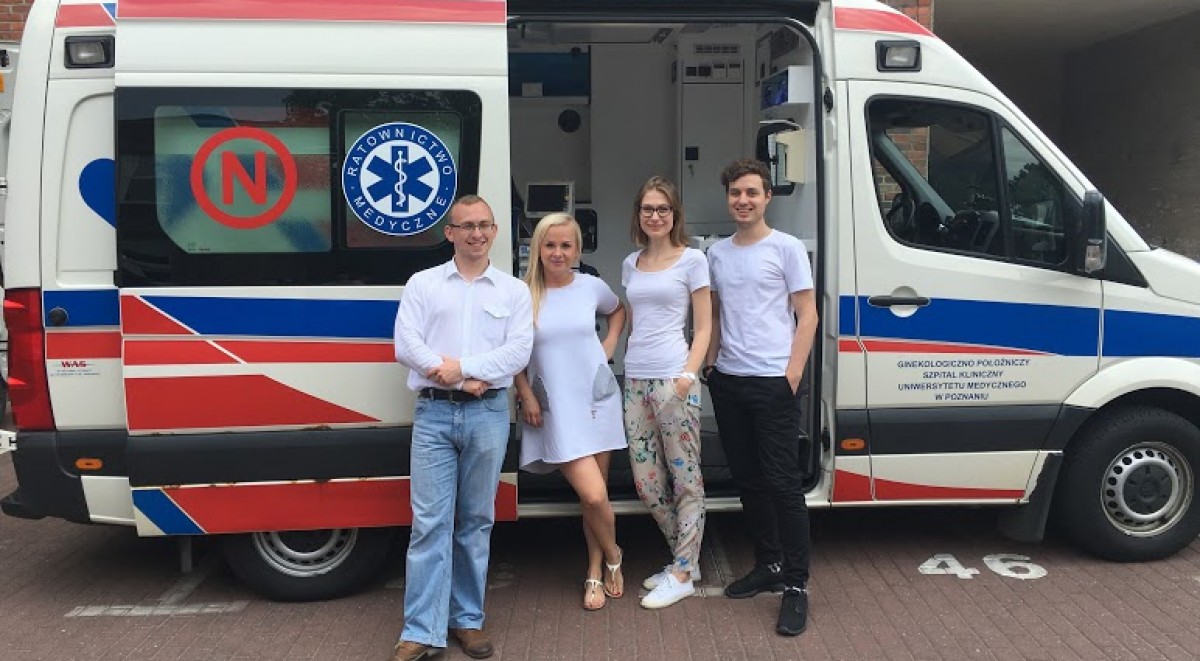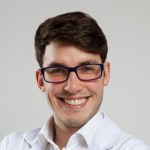
In a world of contradictions where not every citizen has access to running water and medical aid, but successfully uses Facebook and other technological goods, it is hard for average volunteers to find themselves at first. We ask ourselves what truly is necessary for us to live, what gives us a sense of fulfillment and security? In addition, do the civilization improvements really bring us closer to a Utopian vision of happiness or do they drive us away?

Africa is not possible to understand, to be closed in words, to be passed through, because it is too diverse and dusted with stereotypes. Omnipresent peace, quiet, sometimes interrupted by goat’s bleating or donkey’s braying, picturesque landscapes. Africa is the continent of color and simplicity of life, full of singing and smiling faces, carefree children and concerned mothers. Despite huge cultural and economic differences, Africa is a return to basic – and at the same time, highest – values. It is like a voyage to a world where family plays the main role, where people live the very moment, not the future, and money is used to purchase basic daily products. It is also a place where time is imposed by sunrise and sunset, doctor’s work is a true mission as diagnostics, and treatment possibilities are limited. Day has only 24 hours; there is almost no medical staff, but plenty of patients who, even though it is a matter of life and death, are often not able to pay for their own treatment.
Day after day we – Mzungu (white people), newcomers from distant Europe, were getting used to the charming reality found there, to the desert views, mornings filled with roaring cocks, cackling hens and eager prayers from a nearby mosque. We learned to appreciate shared meals, usually being a mix of beans, rice, lentils and some greens. We could easily discover the upsides of a slowed down life – because of the lack of diagnostical tools, all the knowledge about our patients had to be obtained from the conversations we had with them, we were earning their trust and sacrificing our time, without impatient glancing at our watches. We got used to traveling with unknown drivers, gravel roads and that when it gets dark, instead of street lamps; Milky Way illuminates the sky.
In Kenya we also encountered the other side of African reality: poverty, often leading to giving up safe and efficient treatment methods; tragedy of a mother who cannot afford education and better future for her daughter; sorrows of families in which son, being a HIV carrier, refuses all medication and progresses to AIDS; pain of a women going through a hard labor while essentials like sharp scissors and a working lamp are not obtainable, which makes her suffer even more. In such situations, it is natural to feel overwhelmed with frustration, anger that system and money win with human’s health and well-being – and we, despite our deepest wishes, can do so little.
Africa is a place where everything seems enhanced, where days are warmer and nights are cooler. Good people sacrifice their entire lives for those in need, whilst villains take advantage of others for personal favor filling the country with corruption and malpractice. Life is tough and fragile, often can be short. Living in such environment, we encountered numerous situations a group of twenty-year-olds could not cope with. People trusted us; they submitted themselves to us putting their lives and health in our hands. It was a great honor but even greater responsibility. Despite all our efforts, the gained knowledge and months of preparations, some situations were unpredictable. We witnessed many dramatic moments, such as resuscitation of a child or a young woman dying from tuberculosis, which in Poland is considered a curable disease. However, there were also times filled with joy – times of therapeutic success. Children recovered after phosphoorganic pesticides poisoning. A baby born to HIV-positive mother is completely healthy due to implemented prophylaxis. Incapables could wear shoes and walk again after undergoing charity operations, which they could not afford before.
Life in Kenyan village focuses on local schools, hospitals and church. Mostly the Kamba tribe inhabits it and people communicate in their local language. The hospital has only four wards: both man and female wards, pediatrics and obstetrics. There also is a basic operation theatre, a pharmacy and a comprehensive care clinic for HIV-positive patients. Our daily routine included morning round, physical examination, and administering medications, helping in outpatients’ department, assisting in procedures or C-sections, and dressing wounds. Although at the beginning Kenyan hospitals seemed to resemble some small health care units in Poland, the reality turned out to be much more brutal. An X-ray was out of order, there was no access to oxygen in the main theatre and ECG was not available at all. That made us realise that all the equipment, which we had gathered could really make a difference in Kenyan hospitals.
Meetings of the support groups for HIV-positive patients were a source of many touching stories. We met a woman who could not afford a simple toothbrush for her daughter. A group of men, who wanted to make a living by growing vegetables but they had no access to water. We had expected seeing poverty and and poor living conditions. We had expected being overwhelmed by indigence. Indeed, we saw some poverty. However, we also saw happiness and peace in people’s eyes. There was sadness but no sorrow. Those people taught us humility, the proved that we can be happy in spite of sickness, poverty or bad fortune. We believe that those meetings had a great impact on Kenyans too. Not because we are white students from distant Europe, but because we treated them as equals and as normal people despite their disease. Unfortunately, in their native country they are often suffer from stigmatization and exclusion.
We could talk and talk about Kenya for hours. However, it can be said that our short stay in Africa, those few weeks or even months, will not save the world. Indeed, we are not capable of repairing the whole healthcare. Among dozens or hundreds of hospitals, we have managed to visit merely a few. So is it worth all our efforts and hard work? We have no doubt. We do not want to help the whole planet at once, but if a single woman will not suffer from lack of basic equipment in the maternity ward, it is worth it. If a single man will recover sooner, because we have shown how to dress an ulcerating wound, it is worth it. It is worth it even if a single patient was to receive a better and more effective healthcare and therefore increase the quality of his life. Regardless of race, faith or sex, Life is the greatest value, both in the Dark Continent and in the every corner of the world.
